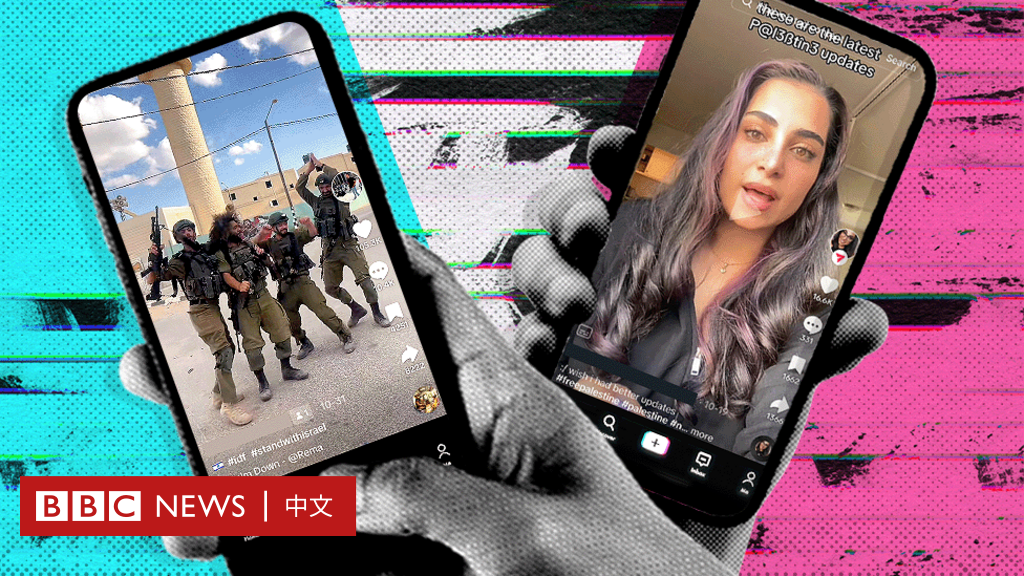The Israel-Gaza war has sparked a surge of content on social media platforms, particularly on TikTok, highlighting the polarization and increasing extremism of both sides. TikTok’s algorithm has been shaping the content that users see, ultimately reinforcing their existing views and biases.
Videos on TikTok using the hashtag “#istandwithisrael” have been viewed 240 million times, while videos using the hashtag “#istandwithpalestine” have accumulated more than 870 million views. This significant disparity reflects the pro-Palestinian content’s popularity among “Gen Z” users, who seem to be more engaged with this content.
The content supporting both camps vary significantly in terms of their most popular content. Among the pro-Palestinian content, videos from local Gazan bloggers and pro-Palestinian users commenting from their bedrooms elicit the most positive reactions among younger users. Meanwhile, videos from the Israeli Defense Forces (IDF) appear more sophisticated and carefully curated, seemingly catering to TikTok’s viral trends.
However, there are concerns that the unofficial content circulating on these platforms may contain hate speech, disinformation, and anti-Semitic rhetoric. Both pro-Israel and pro-Palestinian TikTokers have reported receiving hateful comments and reactions to their videos, with allegations of promoting hate speech and disinformation.
TikTok has responded to these concerns by removing over 1.1 million videos from conflict zones that violated its rules, including content promoting Hamas, hate speech, terrorism, and disinformation. The company has also emphasized its commitment to boycotting content that promotes Islamophobia or anti-Semitism.
The polarizing nature of the content on TikTok is evident, with users exposed to extremist ideologies and misinformation. This has sparked condemnation from British comedian Sacha Baron Cohen and other Jewish celebrities, who accuse the platform of contributing to the spread of anti-government and anti-Semitic narratives.
As social media continues to play a significant role in shaping public opinion, the impact of these platforms on the Israel-Gaza conflict remains a subject of concern and scrutiny. The spread of disinformation, hate speech, and extremist ideologies highlights the need for stricter regulations and oversight of content on these platforms.
